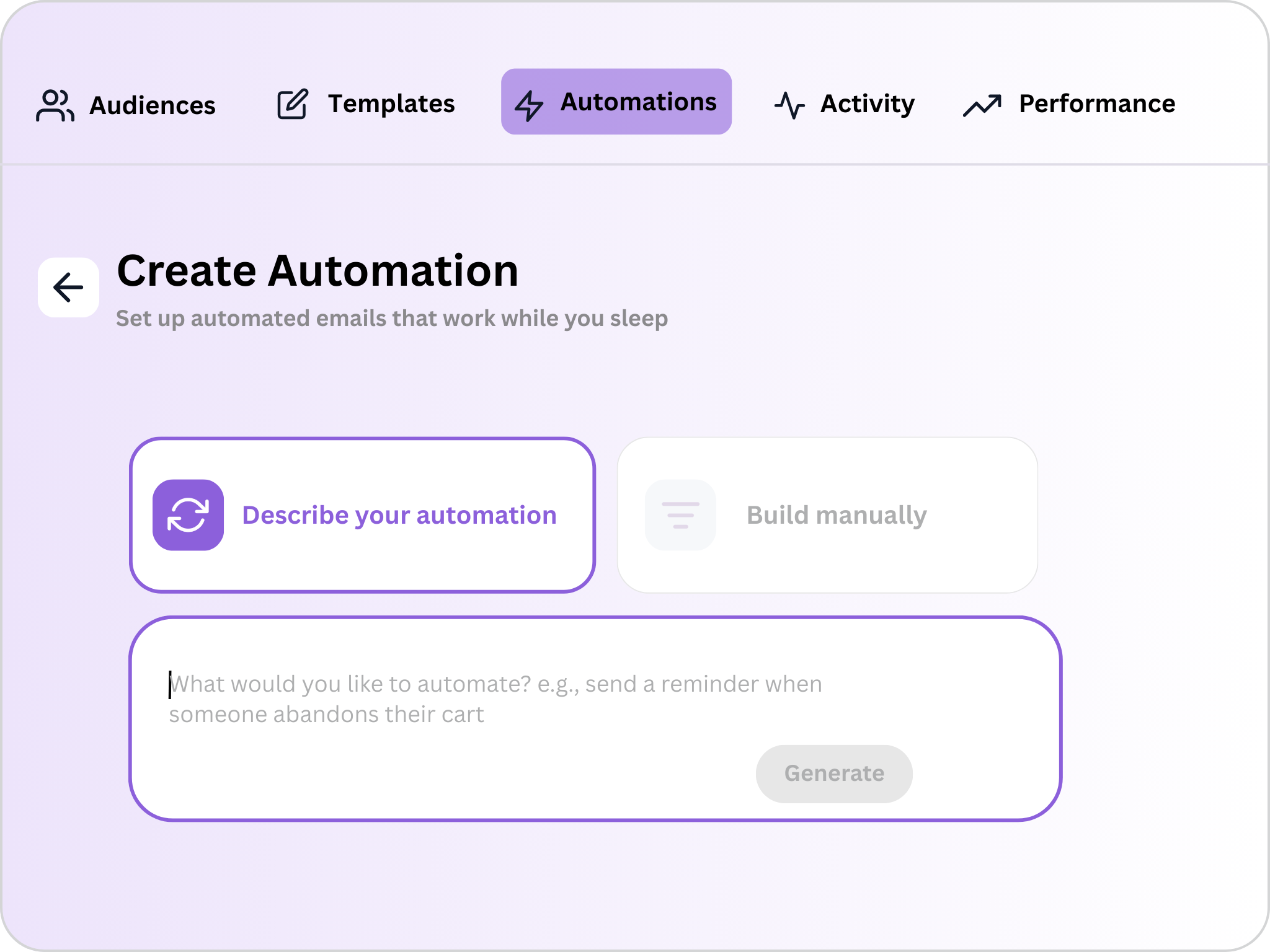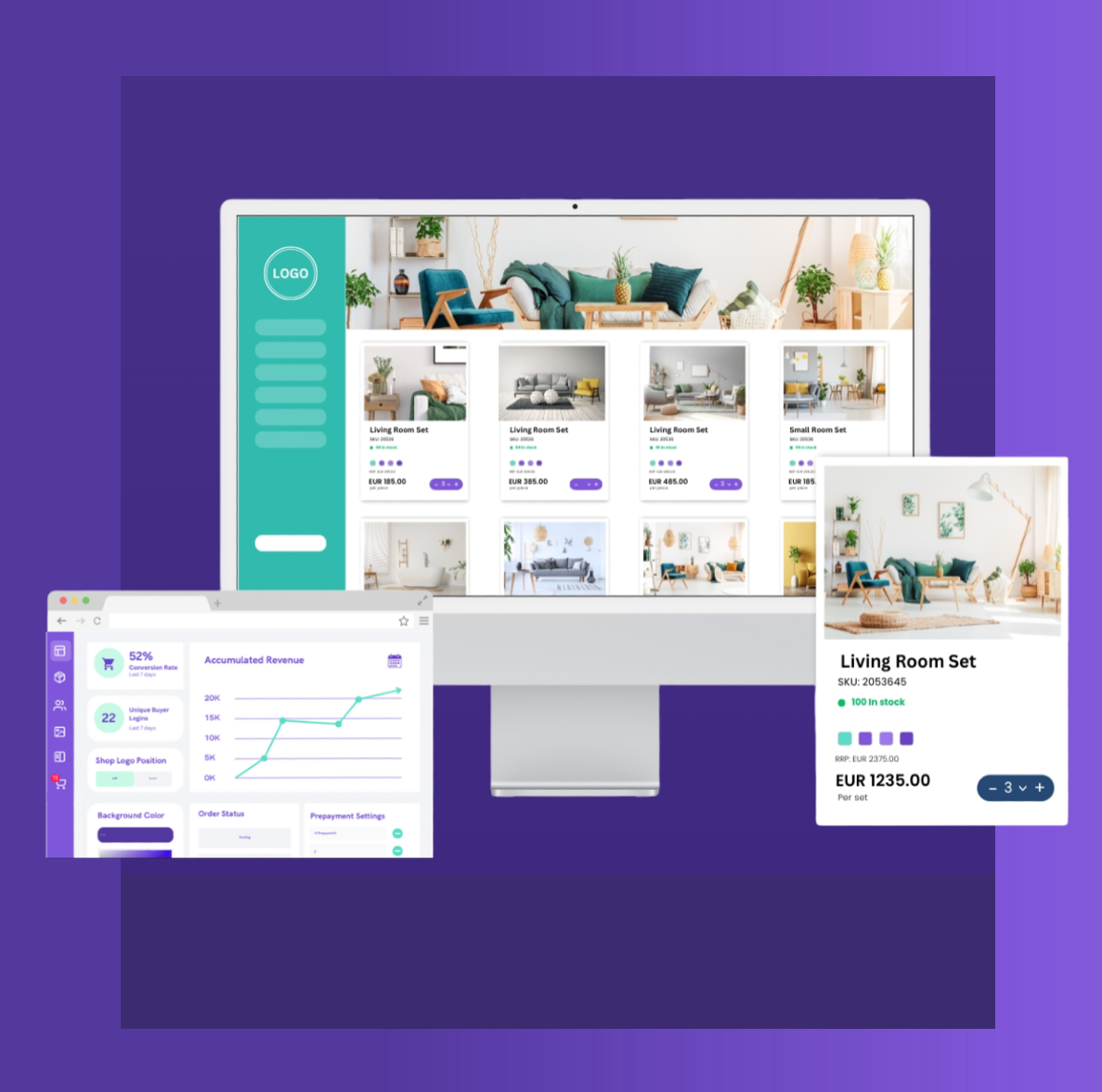4 Key reasons why Footwear Brands need to invest in B2B eCommerce

The European footwear market is expected to surpass USD 94,418 million by 2030, with a steady CAGR of 5.7% over the forecast period. As this market grows, competition increases, and more footwear brands are turning to B2B eCommerce to streamline their wholesale operations and stay competitive. With 73% of B2B buyers preferring to make purchases online, investing in a B2B eCommerce platform has become essential for footwear brands to scale, automate processes, and build stronger relationships with retailers.
In this article, we’ll explore 4 key reasons why footwear brands should invest in B2B eCommerce to drive growth and efficiency.
4 Key reasons why a B2B eCommerce platform is essential for Footwear Brands
Traditional methods of selling wholesale—manual order forms, phone calls, and emails—are time-consuming and prone to error. With a B2B eCommerce platform, footwear brands can automate and simplify these processes, making it easier for retailers and distributors to place orders. Here are some key reasons why B2B eCommerce is important for footwear brands:
1. Efficiency
In the footwear industry, managing inventory, pricing, and orders can be overwhelming, especially as brands grow. A B2B eCommerce platform automates much of this work, reducing manual tasks and freeing up time to focus on product development and marketing. Automated order processing, real-time inventory updates, and integrated pricing make the entire process smoother.
2. Reach new markets
B2B eCommerce allows footwear brands to easily expand into new markets. Whether you’re selling locally or internationally, a well-built platform lets you showcase your product catalog to retailers worldwide, ensuring you’re not limited by geographical boundaries.
3. 24/availability
With a B2B eCommerce platform, your wholesale store is open 24/7. This means retailers can browse your catalog, place orders, and track shipments whenever it’s convenient for them—without waiting for sales reps or office hours.
4. Custom pricing for retailers
Not all retailers are the same, and your pricing shouldn’t be either. A B2B platform allows you to offer customized pricing for different buyers, based on factors like order volume, purchase history, or location. This flexibility helps you cater to a wide range of customers, from small boutiques to large chain stores.
Key features your Footwear Brand should have in a B2B eCommerce platform
When choosing a B2B eCommerce platform, footwear brands should ensure the platform can handle their unique needs. Here are some essential features:
Tiered pricing and bulk discounts
Footwear brands often sell in large quantities, and offering tiered pricing or bulk discounts is a great way to encourage retailers to buy more. A B2B eCommerce platform should allow you to set different price levels based on order size, automatically applying discounts when certain thresholds are met.
Inventory management
Real-time inventory tracking is crucial for footwear brands, especially when dealing with seasonal products or fast-moving trends. A good B2B platform will integrate with your existing inventory systems, ensuring that retailers see accurate stock levels and can order with confidence.
Custom product catalogs
Footwear brands often have a wide range of products—shoes, boots, sandals, etc.—and not all retailers will need the full catalog. A B2B eCommerce platform should allow you to create custom catalogs, showing retailers only the products that are relevant to them.
Order automation and fulfillment
Automating the order process not only saves time but also reduces the chance of human error. A B2B platform can automatically generate invoices, update inventory, and send shipping notifications, ensuring a smooth experience for both you and your buyers.
Flexible wholesale payment options
Offering multiple payment methods, such as credit card, bank transfer, or net payment terms, makes the buying process easier for retailers. A good B2B platform should integrate with various payment gateways, allowing your customers to choose the option that works best for them.
Key benefits of streamlining your business with B2B eCommerce
By moving your wholesale operations to a B2B eCommerce platform, you’re not just making your life easier—you’re also improving the experience for your retailers. Here’s what streamlining can do for your brand:
- Save Time: Automating repetitive tasks like order processing and inventory management means you’ll spend less time on admin work and more time on growing your brand.
- Reduce Errors: Manual data entry can lead to mistakes in orders, pricing, or shipping. A B2B platform reduces these errors by automating the process.
- Improve Customer Relationships: With custom pricing, tailored catalogs, and easy ordering, you’ll build stronger relationships with your retailers, making them more likely to come back for future orders.
Conclusion
Footwear brands that embrace B2B eCommerce are positioning themselves for growth in an increasingly digital marketplace. By streamlining operations, offering flexible pricing, and improving the buying experience for retailers, you can stay ahead of the competition and focus on what matters most—creating great footwear. Whether you’re a small brand looking to expand or an established player in the market, a B2B eCommerce platform is the key to taking your wholesale business to the next level.

